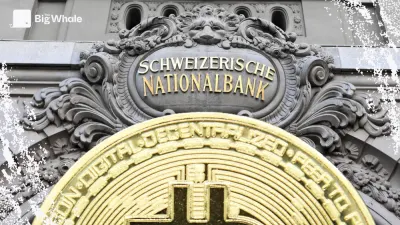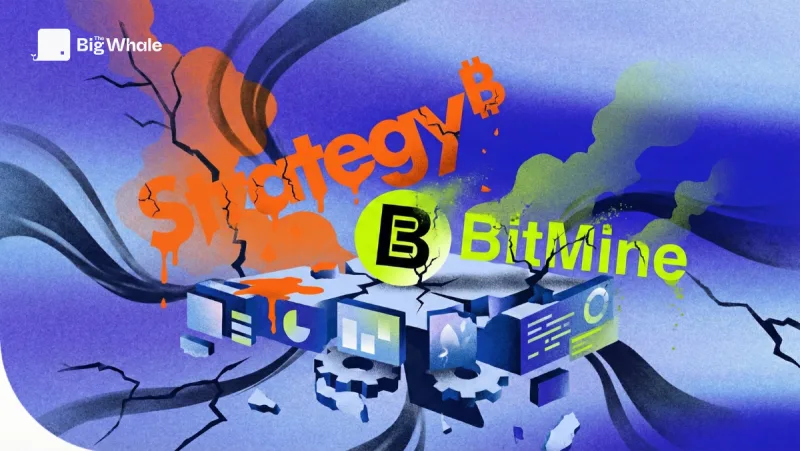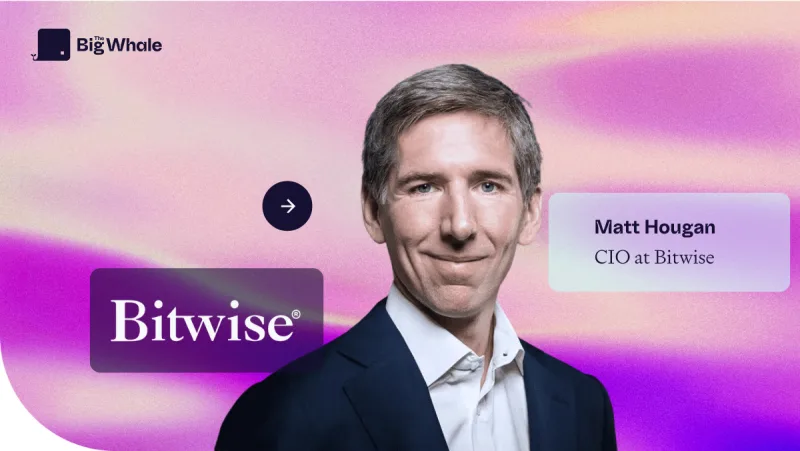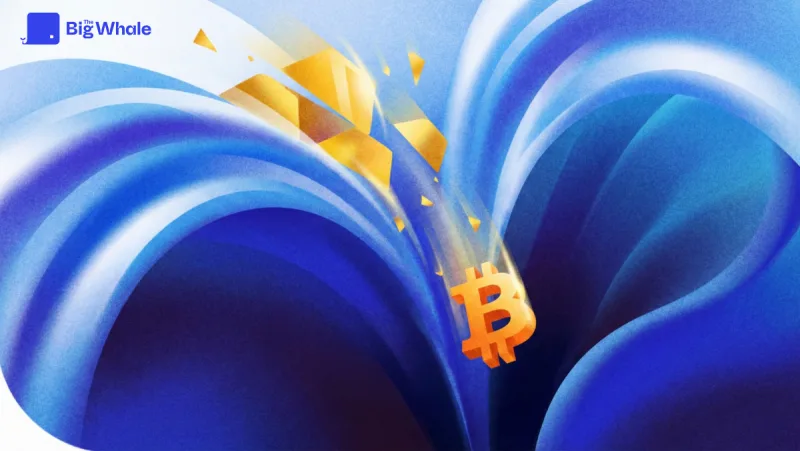TBW - How Switzerland's central bank Is quietly building bitcoin exposure

Switzerland likes discretion, especially when it comes to its finances. But behind the hushed tone and stated neutrality of the Swiss National Bank (SNB), a bold move seems to be taking shape: that of exposure, albeit indirect, but very real to Bitcoin.
For several months, a debate has been running through the Confederation. Should the SNB hold Bitcoin or not? The question, long confined to the margins, took a political turn this year with the filing of a popular initiative aimed at amending the Constitution to encourage the central bank to keep some of it in its reserves, in the same way as gold.
At the head of this movement, Yves Bennaïm, defends a simple idea: "We're not telling them what to do, we're just saying: look into it."
But while the country is debating, the SNB is acting discreetly.
An indirect but assumed exposure
Although it is not a sovereign wealth fund, the SNB, with a balance sheet of 855 billion dollars, is on a par with some of the world's largest state funds, such as those of Singapore or Qatar. It does not seek to play a role in these ventures: it is primarily a currency management tool (alongside foreign exchange reserves and sovereign bonds).
Officially, the Swiss National Bank has never bought bitcoins.
However, its public data with the SEC tells a different story: that of growing exposure via Strategy (formerly MicroStrategy), the US company that has become the world's largest institutional holder of bitcoin (641,205 BTC to date, or more than $66 billion).
While the SNB had been an anecdotal Strategy shareholder for several years, the latter abruptly increased its allocation between June and September 2024. It increased its position in Strategy tenfold, from 47,000 to 468,000 shares.
A year later, on 30 June 2025, it held almost 750,000 shares, valued at more than $300 million in its latest balance sheet (currently $191 million).
Sure, this represents only a tiny fraction of its US equity portfolio, estimated at $154 billion, but the signal is clear: the SNB is exposing itself, however modestly, to the world's most scrutinised digital asset.
Is this a conscious choice?
"Strategy is the company most closely linked to Bitcoin in the world, increasing its portfolio in it so rapidly is not insignificant," says a Swiss banker.
The SNB justifies its investments with a "neutral and passive" strategy, modelled on the structure of the major US stock market indices, notably the S&P 500 or the Nasdaq 100. However, Strategy is still not included in the S&P 500 and did not join the Nasdaq 100 until December 2024, several months after the SNB's investments.
For Romain Braud, head of digital assets for Arab Bank Switzerland, "its significant exposure from September 2024 indicates an early allocation, probably linked to discretionary decisions by its external managers or indirect exposure via funds or ETFs."
At the same time, SNB has sharply reduced its exposure to Apple in recent years (70 million shares in Q2 2022, compared with 45 million in 2025). At the same time, it has increased its stake in Nvidia sixfold.
On Strategy, the increase factor for shares held by SNB is 46 since the launch of its bitcoin accumulation policy in August 2020.
"When you look in detail, some of its positions in the tech giants have declined, while Strategy has exploded. And there was nothing mechanically dictating this if we rely on index logic," remarks Yves Bennaïm.
.png)
According to an inside source interviewed by The Big Whale, "the SNB makes no statements about individual positions in its portfolio".
"In any case, this approach allows it to benefit from Bitcoin's performance without assuming the regulatory, operational or even controversial risks," agrees Romain Braud.
The SNB is said to use Strategy as a discrete proxy. A way of gaining exposure to Bitcoin without crossing the symbolic line of a direct purchase.
"It's a way of cushioning the political shock," adds a Geneva banking source. "If it announced tomorrow that it had bought Bitcoin, it would make a considerable noise. By investing via a listed company, it is ensuring credible coverage while testing the waters."
>> Report - Bitcoin Treasury Companies : Diving into a model unique in the world
A Bitcoin wallet that doesn't stop at Strategy
Strategy is not the SNB's only bet linked to the Bitcoin ecosystem. Since the end of 2024, it has also held shares in Trump Media & Technology Group, the parent company of the Truth Social network... and now listed among the "Bitcoin Treasury Companies" (15,000 BTC, or $1.5 billion).
Under the Trump presidency, the company has announced that it wants to build a multi-billion dollar Bitcoin reserve, in parallel with the creation of a national strategic reserve in the United States formalised in March 2025.
>> Trump and the United States officialise a 100% Bitcoin reserve
The BNS position in Trump Media is symbolic (less than $10 million), but it illustrates a troubling convergence: the central bank of a neutral country like Switzerland is indirectly exposed to two of the most emblematic entities of the "bitcoinised" turn in the US economy.
It also holds several tens of millions of dollars' worth of shares in US miners Riot Platforms, CleanSpark, Cipher Mining and Hut8.
For Yves Bennaïm, this is no coincidence: "The SNB follows what the major powers are doing. When the US and the BRICS+ decide to set up a strategic reserve in Bitcoin, Switzerland has to follow suit."
"Switzerland doesn't like to make a fuss, but it is preparing its back," says a banking source. "By strengthening its position on Strategy, the SNB is sending a signal: it wants to understand the phenomenon and be ready to act."
This discretion could become a strategic weapon. As the US institutionalises Bitcoin and Deutsche Bank estimates in a recent report that by 2030, Bitcoin could coexist with gold on central bank balance sheets.
>> Digital Assets Treasuries (DATs): a good bet, really?
Why Bitcoin makes sense for a central bank
Bitcoin shares several qualities sought after in reserve assets: scarcity, portability and independence. Unlike gold, it is instantly transferable, storable at no logistical cost and incorruptible in its governance.
"It is the most neutral asset in the world," sums up Yves Bennaïm. "It does not belong to any State, is not dependent on any monetary policy, and can be mobilised in the event of a crisis without going through the dollar."
In a context of increasing de-dollarisation, where the greenback's share of global reserves has fallen from 60% in 2000 to 43% in 2024, Bitcoin appears to be a strategic diversification tool, on a par with gold a century ago.
But for the SNB, the whole challenge is to move forward without compromising its reputation for neutrality. "You need finesse," says one banker. "If the SNB moves too soon, it risks being accused of speculation. If it moves too late, it could lose a historic opportunity."
States must take the step of holding Bitcoin directly
For Yves Bennaïm, founder of the popular initiative to bring Bitcoin into central bank reserves, it is important that direct holding is anticipated with a view to more concrete exposure.
"By buying Strategy shares it holds around 1,500 bitcoins in a roundabout way, but it accumulates all the disadvantages: exposure to the dollar, to US regulations, to the volatility of a private company, without benefiting from the advantages of Bitcoin itself."
The paradox, he points out, is that the SNB claims to avoid any political or media influence by hiding behind stock market indices.
"Buying Strategy is like buying a Nasdaq stock, which is liquid and doesn't make waves. But in reality, that puts it under the scrutiny of the SEC. It has to file Form 13F like any other US fund. For a central bank that claims to be independent, this is an admission of dependence", he argues.
According to him, governments must now "take the step of direct ownership" to regain true financial neutrality: "Buying Bitcoin directly means regaining control. It means having a global asset, liquid 24 hours a day, independent of any foreign jurisdiction."
Beyond the SNB, he sees this development as a global trend: "The fact that the stability of the Swiss franc is already, even marginally, linked to Bitcoin, shows that the changeover has begun. Central banks will eventually recognise that Bitcoin is no longer a speculative bet, but a strategic asset."
For Switzerland, he says, the issue goes beyond finance: "It's about consistency and sovereignty. Either we continue to pretend we don't have any, or we accept that Bitcoin can strengthen our independence and stability."
>> Tribune - Gabriel Jaccard (Good Token Society): "Is Switzerland in danger of falling behind?"



